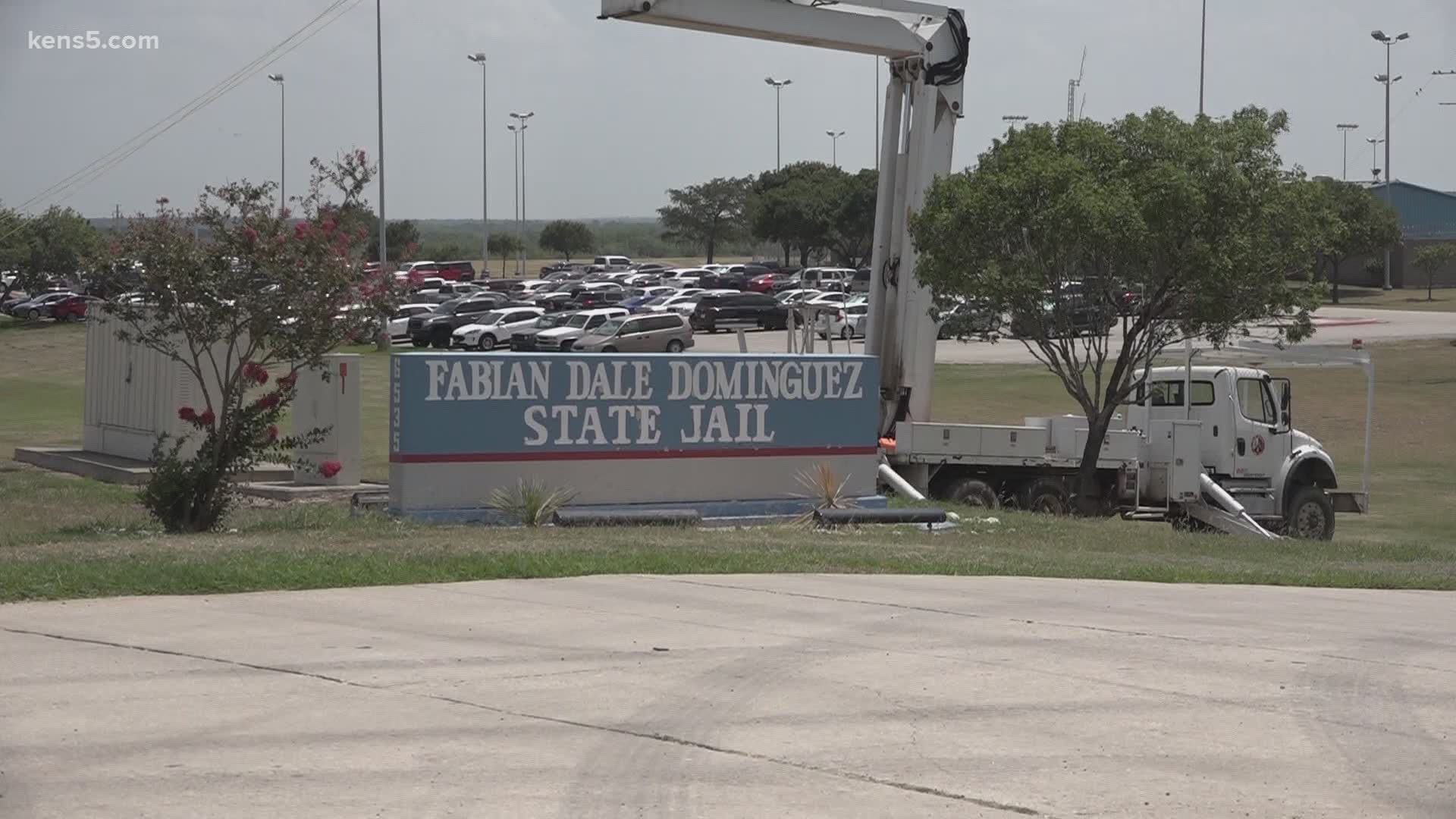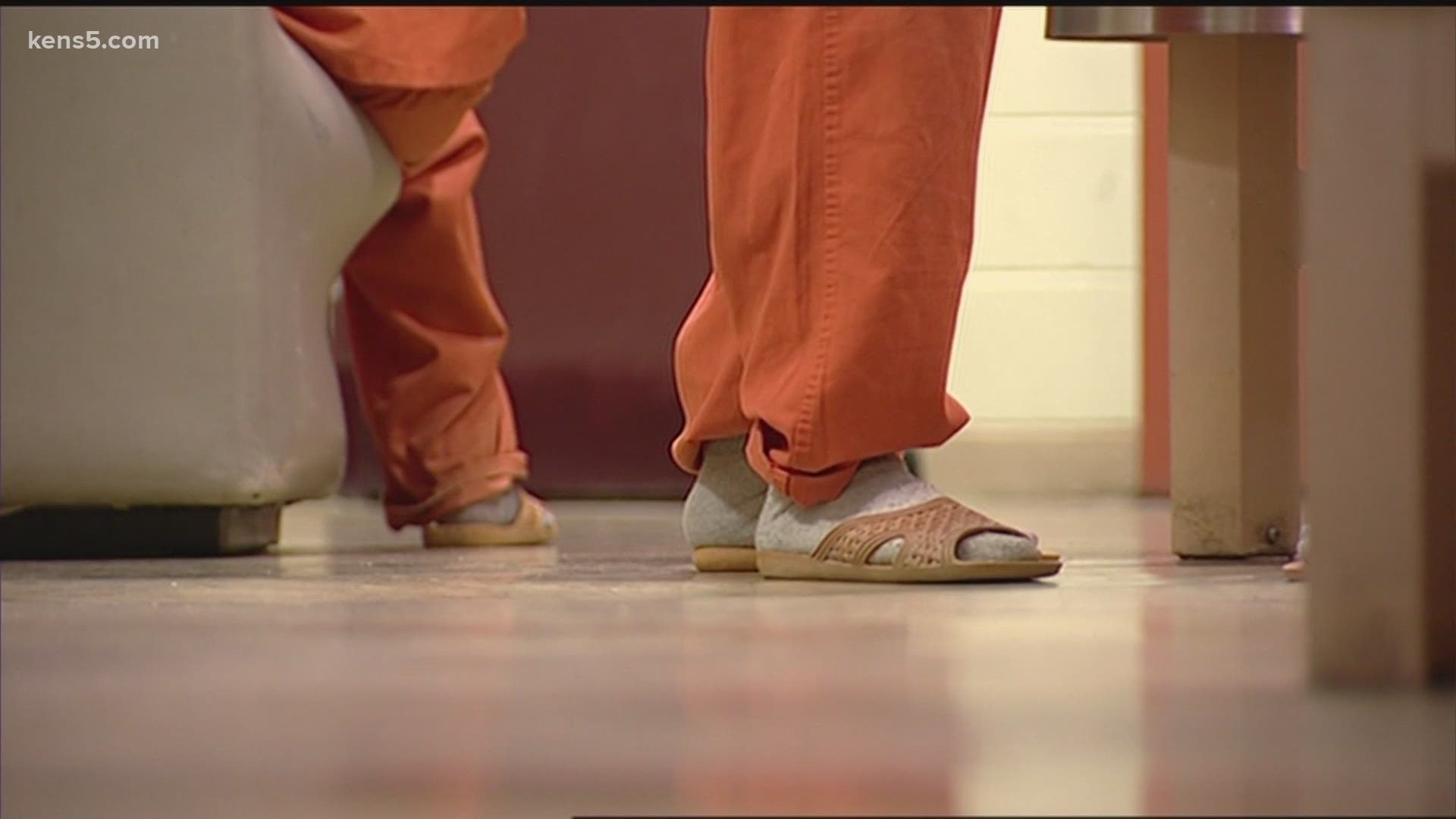SAN ANTONIO — In May, Governor Greg Abbott called for widespread testing at all Texas prisons and jails. Since then, nearly 500 inmates at the Dominguez State Jail in far Southwest Bexar County have tested positive for the novel Coronavirus.
Jamie Hernandez and Breanna Sawey both have loved ones at the Dominguez State Jail. They said their respective loved ones have tested positive for COVID-19.
"They pretty much have us locked in this room with 35 or more of us in here. Some are looking very sick," Hernandez's husband, Mark Anthony Munoz, wrote in a letter describing the conditions at the jail.
Munoz is serving a ten-year sentence stemming from drug charges out of Hidalgo County, online records show. Munoz, in his letter to Hernandez, wrote that he was suffering mild symptoms of COVID-19, but Hernandez said her communications with Munoz have been sparse.
She and Sawey said they are concerned about the rapidly rising number of positive cases at the facility. They said despite attempts to get answers, they are still in the dark as to what steps the prison is taking to mitigate the virus.
A spokesperson for the Texas Department of Criminal Justice told KENS 5 the spike in cases is primarily due to mass testing of asymptomatic inmates and that the prison is on a precautionary lockdown to prevent the spread of the virus.
The spokesperson also elaborated on how the inmates are co-horted:
Medical restriction: For an offender who has shown to have been in contact with someone who has tested positive or has a pending test. In this case, the staff is required to wear an N-95 mask and gloves PPE.
Medical isolation: For offenders who have tested positive. In this case, the staff is required to wear PPE.
Precautionary lockdown: N-95 required for all staff.
Because the Dominguez State Prison is under a precautionary lockdown, phone use is restricted, a spokesman for TDCJ said.
"It's difficult for them being in there, and then with us being out here, having basically no communication back and forth, not really knowing what's going on with them while they're in there," Sawey said.
Sawey and Hernandez said they largely rely on information from handwritten letters and get some updates from the TDCJ's COVID-19 hotline. They said they are frustrated at the rapid rate of the spread and how difficult it has been for them to obtain information.
Both agreed that while their loved ones are incarcerated for drug crimes, they deserve to be better informed about their health.
"My husband is still a human and he needs to be respected as such," Hernandez said. "Because my husband wasn't a bad person when he was here."
In the meantime, they have created a Facebook group to exchange various details about what their loved ones tell them is happening behind bars.
"(The public) should be concerned because right now, it's my husband, and maybe tomorrow it's going to be their son," Hernandez said.


